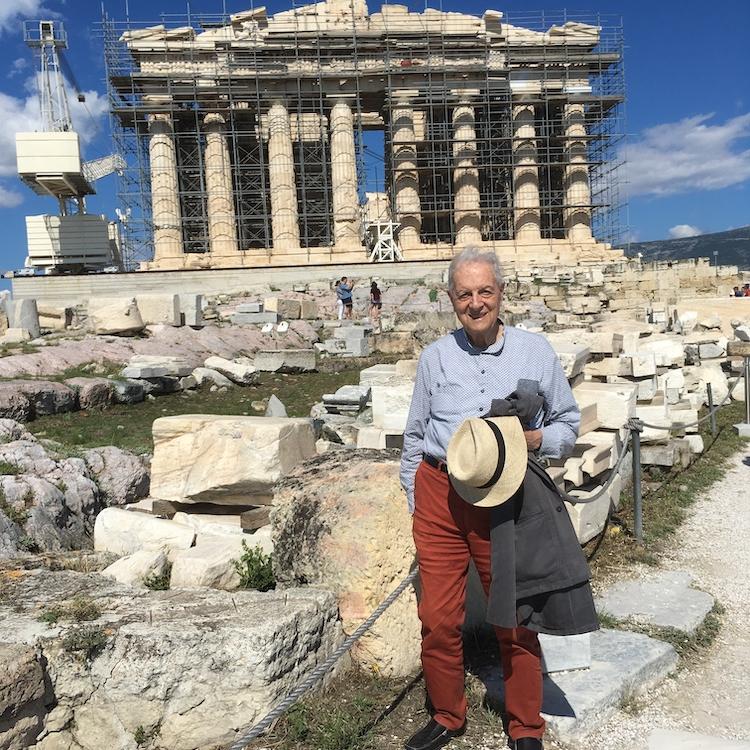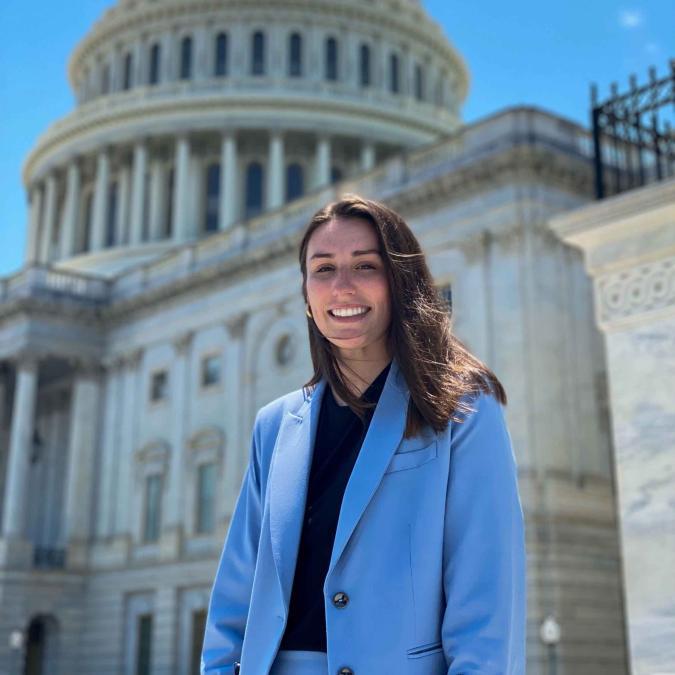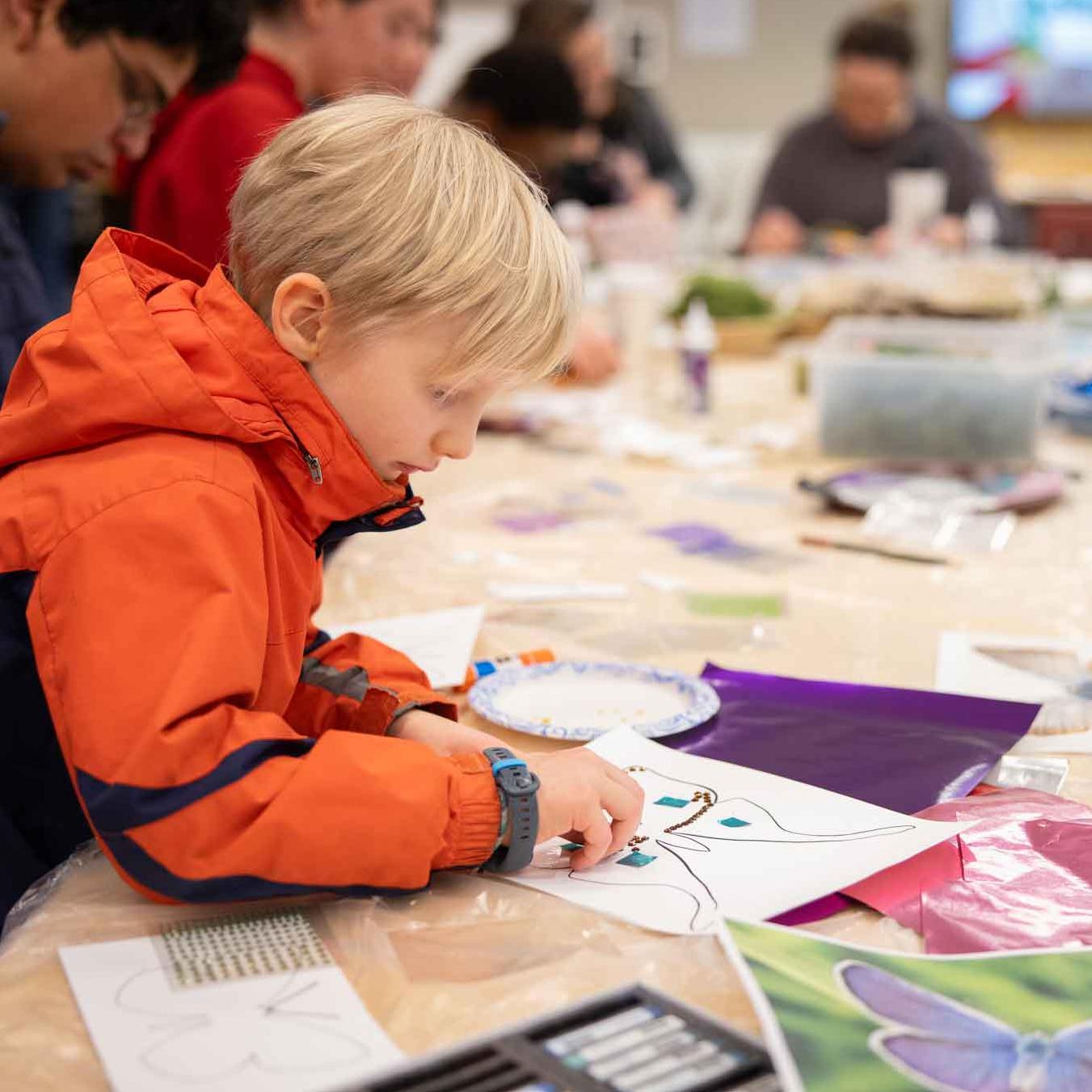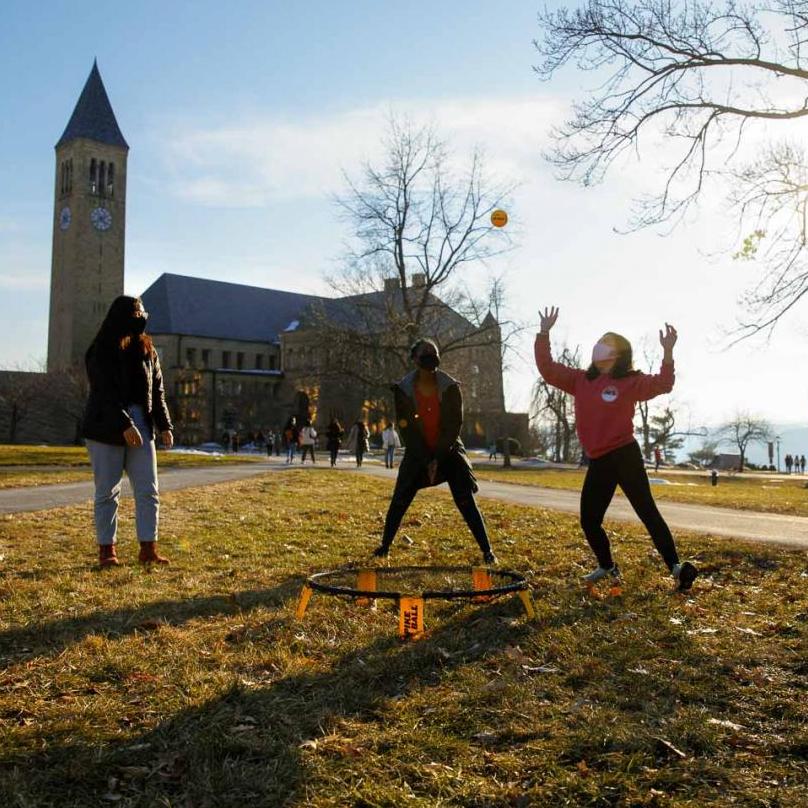"Far-Flung Poems and Front-Page Headlines"
This story registers a pivotal moment during my senior year as a high school student in Brooklyn N.Y., but it also has a component that relates to Cornell. For the moment, let’s start with that school. It was a commuter “prep” school that emphasized—as such institutions did at the time—language instruction: four years of classical Latin and three years of a modern language. The theory was that you couldn’t possibly master and communicate anything worthwhile unless you understood how language works, and the best way to do that was through foreign language study. Harnessed to an Honors track that added three grueling years of ancient Greek to the mix, I cursed my fate. German—the modern language assigned to me by those who thought that I’d become a scientist and would enjoy poring through archives of Teutonic research—seemed less of a problem than Latin or Greek. My next-door neighbors were German-Americans and it would be fun to pitch ein paar Worte over the back-yard fence. Still, it was through the ancient languages, and especially Latin, that my education in poetry began.
Senior-year Latin called for a reading of Vergil’s Aeneid in Latin. Our teacher was a recently published poet, praised by the celebrated Marianne Moore—she who thought that good poems embody “imaginary gardens with real toads in them.” Just say that to thirty or so teen-agers who spoke like Bernie Sanders and here’s what you’d get: “He’s a . . . poet? Meh.” But day-by-day, week after week, this home-room poet taught us how to find the unsuspected toads in Vergil’s hexameters. I’m not quite sure when it all began to take root, but it certainly deepened the more that I knuckled under to Vergil’s famous verbal economy, as elliptical nouns, suspended verbs, and an interlocked word-order replaced ordinary logic with a complex multi-leveled reality.
An example occurs early in the Aeneid. Its hero, a migrant refugee bolting from the Trojan War across stormy seas and false havens, has landed in northern Africa. There he finds an artistic tableau representing the combat that he has left behind. “Sunt lacrimae rerum et mentem mortalia tangent” ‘Here (flow my) tears for things (that we have suffered) and things that die move (my) mind’ (1.462, where the parenthesized words have no direct equivalent in the Latin original). The phrase lacrimae rerum—perhaps Vergil’s most famous, even for readers without Latin—is hauntingly enigmatic, though the sentence that it dominates is simple: ‘(These) are (the) tears of things.’ Its bare-boned subject-verb form states only that ‘tears—lacrimae—happen,’ implying the object of tears in the equally bare-boned rerum ‘of things’. What “things”? Hopes? Fears? Memories? Loss? Violence? Deceit? And how do the noun and adjective that follow it limit or expand the possibilities: mentem, the ‘mind’ of Aeneas who tastes his own vulnerability? mortalia, ‘mortal remains’ attributed as much to the hero as to his dead compatriots? The idea that this epic poem about war and Rome’s destiny might interrogate war and the aims of empire proved transformative. This was what our teacher-poet pressed us to look for: the toxic toads that we might disclose and contest.
Around the same time, my instructor in German—as intense and affable as his colleague in Latin—began treating us to poems in that language by August Stramm, Bertolt Brecht, Franz Werfel: poems about brute facts of twentieth-century history, the pathology of world war, and the fate of ethnic minorities in Nazi Germany. They too made deep impressions on me, especially those that held an uncanny mirror to the treatment of minorities in 1960s America. My readings gained momentum as time moved on, thrumming with an emergent awareness of social injustice and racial discrimination, ineluctably toward Dr. Martin Luther King’s March on Washington and my face in a front-page photo of the New York Times (true, one face among 250,000 on the Mall, but a face nonetheless). Here was Transformative Humanities in a minor key.
As it turns out, by the mid-1960s German had become my undergraduate major, supplemented by a minor in French and Italian that, for want of instruction, I crash-coursed my way into. By the decade’s end I was completing my Ph.D. dissertation in (guess what) Comparative Literature, with a mini-chapter on Vergil’s Aeneid among longer chapters on Renaissance epics. One Spring day in 1970 I came upon three more front-page photos in the New York Times—a frontal and two side views of my high-school Latin teacher. The FBI had placed him on its Ten Most Wanted list with a warning that he was at large and out of sight, a felon and fugitive from justice. Here was Transformative Humanities in a major key.
And this is where Cornell comes in. I don’t know how many readers recognize the name of Daniel Berrigan, a Jesuit priest who in 1965 co-founded an interdenominational group of Clergy and Laity Concerned about the War in Vietnam. In 1967 Cornell United Religious Work invited him to minister to anti-war factions seething on campus, and for the next three years he did exactly that. Meanwhile, on his own and with other high-profile critics of the war, he incinerated draft files at several military recruitment centers, for which he was sentenced to federal prison. But instead of reporting to prison, he ventured upon one last public display by going underground, leaving Cornell through a trap door in Barton Hall, spectacularly hoodwinking the FBI, often in plain sight, for almost five months until the Feds caught up with him. Who was to know that a poet—the one who had guided me through Vergil—might be so fleet of foot.
The poet’s voice of conscience and truth to power rallied hundreds of Cornellians, though at the time his acts of civil disobedience outraged not a few faculty members and administrators who were tied to government contracts, and alumni veterans who had served in Europe, the Pacific, Korea, and Vietnam. Cornell’s Kroch Rare and Manuscript Library eventually came to honor his unpublished manuscripts, correspondence, and miscellaneous writings by housing them along with more than forty volumes of his published poems, plays, prose essays, and literary studies in its magnificent collection.
As it happens, I’m a thumbs-up habitué of this library for its incredible assortment of materials on Dante, Petrarch, Erasmus, Shakespeare, James Joyce, and others whom I teach and write about. Browsing though my former teacher’s oeuvre there, I’ve been stunned to find papers and drafts of talks on unanticipated authors—many of them French and Italian—who’ve seized my own professional attention: Dante and Gerard Manley Hopkins, understandably for a clergyman, but also Rabelais, Baudelaire, Pirandello, Wallace Stevens—writers and poets who unfailingly bring new and transformative insights, but whose skepticism, doubt, and unbelief might seem strange fare for a man of the cloth. It is, of course, hardly strange. Our commitment in the Humanities is not to reaffirm our values blindly, but to interrogate them urgently, to take them out of our social, cultural, and historical comfort zones and expose them to the tears of things, to the tragedy—and comedy—of the only world we know, to the possibility—just maybe—of one day tending to real gardens without any contaminants at all.
About the Transformative Humanities Project
Faculty in the College of Arts & Sciences share a belief in, and speak often with our students, their parents, and the broader public about, the importance of the humanities for shaping deep and meaningful human lives. These short reflections by our faculty illustrate — in concrete and personal ways — how encounters with the stuff of the humanities have in fact been transformative in their own lives. In composing these reflections faculty were responding to the following assignment: Pick a single work in the humanities that has profoundly affected you — that inspires you, haunts you, changed the way you think about things, convinced you to pursue your life’s work, redirected your life’s work . . . in short, a work that has made your life in some way deeper or more meaningful.
This reflection is one of the many thought-provoking and inspiring faculty contributions to the “Transformative Humanities” project, part of the College of Arts & Sciences’ New Century for the Humanities celebrations. Read more of them on our New Century for the Humanities page.





